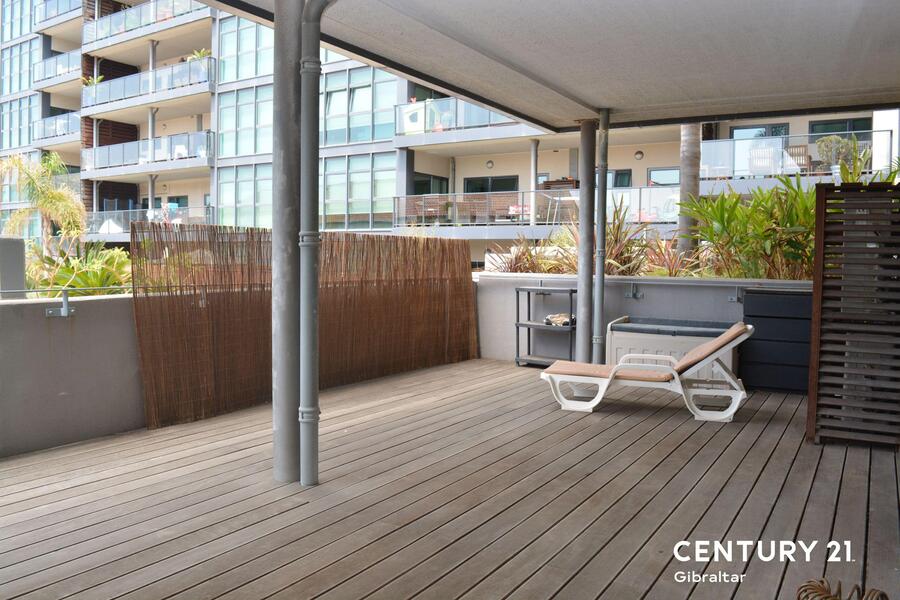Property in Spain and Gibraltar
Buying property is a significant financial decision, and the process varies widely depending on the location. When considering purchasing property in Spain versus Gibraltar, there are distinct differences in legal requirements, financial implications, cultural factors, and market conditions. This article will delve into these aspects to provide a comprehensive comparison for prospective buyers.

Property in Spain and Gibraltar: Legal Framework and Property Ownership
Spain: Spain has a well-established legal framework for property transactions, heavily regulated by national and regional laws. The Spanish property market is open to both EU and non-EU citizens, with no restrictions on foreign ownership. The process involves several key steps:
- Property Search and Reservation: Engaging a real estate agent to find suitable properties. Upon selection, a reservation contract is signed, accompanied by a deposit (usually 1% of the purchase price).
- Due Diligence: The buyer’s lawyer conducts due diligence, verifying the property’s legal status, ownership, and any encumbrances.
- Purchase Agreement: A formal purchase agreement (Contrato de Compraventa) is signed, typically requiring a 10% deposit.
- Notary and Registration: The final deed (Escritura) is signed in the presence of a notary, and the property is registered with the Land Registry.
Gibraltar: Gibraltar, a British Overseas Territory, has its own legal system influenced by English common law. The property market is highly regulated, and while there are fewer restrictions on property ownership compared to other territories, some differences exist:
- Property Search and Offer: Buyers usually work with estate agents to locate properties. Once a suitable property is found, an offer is made.
- Legal Representation and Due Diligence: Similar to Spain, buyers appoint a lawyer to conduct due diligence, ensuring the property has a clear title and is free from debts or legal issues.
- Purchase Agreement: A pre-contract or reservation agreement is signed, followed by a formal purchase agreement after due diligence.
- Completion and Registration: The final contract is signed in the presence of a legal representative, and the property is registered with the Land Property Register.
We recommend reading: Gibraltar Weather: Amazing Properties in the Sun with Spain Nearby
Property in Spain and Gibraltar: Financial Considerations
Spain: The cost of buying property in Spain includes several taxes and fees:
- Purchase Price: Negotiable and varies widely by region.
- Property Transfer Tax (Impuesto de Transmisiones Patrimoniales, ITP): Ranges from 6% to 10% depending on the region.
- Notary Fees: Typically 0.5% to 1% of the purchase price.
- Land Registry Fees: Around 0.5% to 1%.
- Legal Fees: Approximately 1% of the purchase price.
- Value-Added Tax (VAT) and Stamp Duty: Applied to new properties at 10% and 1.5% respectively.
Gibraltar: Buying property in Gibraltar involves distinct financial aspects:
- Purchase Price: Generally higher than in Spain due to limited land availability.
- Stamp Duty: Progressive rates based on property value.
- Legal Fees: Typically higher than in Spain, around 1% to 2% of the purchase price.
- Agent Fees: Often covered by the seller, but can influence the overall cost.
Property in Spain and Gibraltar: Market Conditions

Spain: The Spanish property market is diverse, with regional variations in prices and demand. Coastal areas and major cities like Madrid and Barcelona are popular with international buyers. Market conditions can fluctuate based on economic factors, tourism, and regional developments. In recent years, Spain has seen a resurgence in property investment, driven by favourable economic conditions and attractive prices compared to other Western European countries.
Gibraltar: Gibraltar’s property market is characterized by high demand and limited supply, resulting in generally higher prices. Its strategic location, favourable tax regime, and political stability make it an attractive destination for investors and expatriates. The market is less volatile compared to Spain, with steady demand from international buyers seeking a safe investment and residence.
Property in Spain and Gibraltar: Cultural and Lifestyle Considerations
Spain: Spain offers a rich cultural heritage, vibrant lifestyle, and diverse environments. Coastal regions like Costa del Sol and Costa Blanca attract retirees and vacationers, while cities provide a blend of modern amenities and historical charm. The cost of living is relatively low compared to other European countries, making it an appealing destination for expatriates.
Gibraltar: Gibraltar, though small, offers a unique blend of British and Mediterranean cultures. Its compact size means amenities are within easy reach, and it boasts a pleasant climate, vibrant social scene, and a strong sense of community. The cost of living is higher than in Spain, but the quality of life and tax advantages often outweigh this for many residents.
Property in Spain and Gibraltar: Taxation and Residency
Spain:
- Tax Residency: Individuals spending more than 183 days in Spain per year are considered tax residents, subject to worldwide income tax.
- Property Taxes: Annual property tax (Impuesto sobre Bienes Inmuebles, IBI) based on the cadastral value, and non-resident income tax on rental income or imputed income for non-rented properties.
Gibraltar:
- Tax Residency: Favorable tax regime with no capital gains tax, inheritance tax, or wealth tax. Residency schemes like Category 2 status offer tax benefits for high-net-worth individuals.
- Property Taxes: Rates are relatively low compared to other jurisdictions, with no taxes on rental income for non-residents.
Property in Spain and Gibraltar: Conclusion
Buying property in Spain and Gibraltar offers distinct advantages and challenges. Spain presents a diverse market with various options and a lower cost of living, while Gibraltar provides a stable investment environment, favourable tax conditions, and a unique cultural blend.
Prospective buyers should carefully consider their financial situation, lifestyle preferences, and long-term goals when choosing between these two vibrant locations. Conducting thorough research and seeking professional advice are essential steps to ensure a successful property purchase in either country
Property in Spain and Gibraltar: FAQs
What are the main legal differences when buying property in Spain compared to Gibraltar?
Spain: The process involves a reservation contract, due diligence by a lawyer, a formal purchase agreement, and the final deed signed in the presence of a notary. The property is then registered with the Land Registry.
Gibraltar: The process is similar but influenced by English common law. It includes making an offer, legal due diligence, signing a pre-contract or reservation agreement, and the final contract signed with a legal representative, followed by registration with the Land Property Register.
Property in Spain and Gibraltar: Are there restrictions on foreign ownership of property in either location?
Spain: No, Spain allows both EU and non-EU citizens to purchase property without restrictions.
Gibraltar: Generally, there are no restrictions on foreign ownership, making it an open market for international buyers.
What are the key financial costs associated with buying property in Spain versus Gibraltar?
Spain: Property Transfer Tax (6%-10%)
Notary Fees (0.5%-1%)
Land Registry Fees (0.5%-1%)
Legal Fees (around 1%)
VAT (10% on new properties) and Stamp Duty (1.5% on new properties)
Gibraltar: Stamp Duty: Progressive rates based on property value (e.g., no stamp duty up to £260,000; 3.5% on amounts above £350,000)
Legal Fees (1%-2%)
Agent Fees: Typically paid by the seller but can impact overall costs
How do property prices compare between Spain and Gibraltar?
Spain: Prices vary significantly by region. Coastal areas and major cities like Madrid and Barcelona tend to be more expensive.
Gibraltar: Generally higher prices due to limited land availability and high demand, making it one of the more expensive property markets in the region.
Property in Spain and Gibraltar: What are the differences in taxation for property owners in Spain and Gibraltar?
Spain:
Tax Residency: Individuals spending more than 183 days a year in Spain are subject to worldwide income tax.
Property Taxes: Annual property tax (IBI) and non-resident income tax on rental or imputed income.
Gibraltar:
Tax Residency: Favourable tax regime with no capital gains tax, inheritance tax, or wealth tax. Residency schemes like Category 2 status offer additional tax benefits.
Property Taxes: Relatively low, with no taxes on rental income for non-residents.
What are the lifestyle and cultural differences between living in Spain and Gibraltar?
Spain: Offers a rich cultural heritage, diverse environments, and a relatively low cost of living. Popular for its vibrant lifestyle, historical charm, and coastal regions attracting retirees and vacationers.
Gibraltar: A unique blend of British and Mediterranean cultures with a compact size, making amenities easily accessible. It has a higher cost of living but offers a pleasant climate, strong community, and tax advantages.
Property in Spain and Gibraltar: How do market conditions differ between Spain and Gibraltar?
Spain: Diverse market with regional variations. Coastal areas and major cities are popular with international buyers. Market conditions can fluctuate based on economic factors and tourism.
Gibraltar: Characterized by high demand and limited supply, leading to higher prices. The market is less volatile and offers steady demand from international investors and expatriates seeking stability.
What are the residency requirements for property owners in Spain and Gibraltar?
Spain: No specific residency requirements tied to property ownership, but spending more than 183 days per year makes one a tax resident.
Gibraltar: Offers favourable residency schemes like Category 2 status for high-net-worth individuals, which come with tax benefits.
Is it easier to finance a property purchase in Spain or Gibraltar?
Spain: Various financing options are available through Spanish banks, with mortgages offered to both residents and non-residents.
Gibraltar: Financing options are more limited due to the smaller market, but local banks do offer mortgages to eligible buyers, including expatriates.
What should I consider when choosing between buying property in Spain and Gibraltar?
Spain: Consider the diverse property market, cost of living, and cultural preferences. Spain offers a variety of locations with different lifestyles and price points.
Gibraltar: Consider the higher property prices, tax advantages, and unique cultural blend. Gibraltar is ideal for those seeking a stable investment and a community with a British influence.
How Century 21 Gibraltar Can Help You Buy Property in Spain and Gibraltar

Navigating the real estate markets in Gibraltar and Spain can be a complex endeavour, especially for those unfamiliar with the local processes and regulations.
Century 21 Gibraltar stands out as a premier real estate agency, equipped with the expertise and resources to guide you through every step of purchasing property in these unique locations.
Century 21 Gibraltar is your trusted partner in this journey, offering comprehensive market knowledge, personalized search services, expert legal and financial guidance, and seamless transaction management. With their support, you can confidently navigate the real estate markets in Gibraltar and Spain, ensuring a successful and rewarding property purchase.
Tel: +350 5652 3000 – Email: info@century21gibraltar.com




